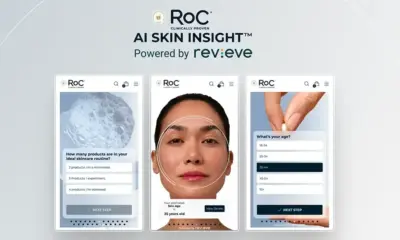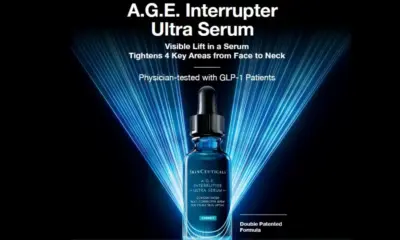Anti Ageing
Microalgal Bio-Retinoid: A Gentle Retinol Alternative to Reverse Signs of Photoaging

Microalgal Bio-Retinoid: Gentle Retinol Alternative
Microalgal Bio-Retinoid: Gentle Retinol Alternative is quickly gaining popularity in the skincare world. This new compound offers similar anti-aging benefits as traditional retinol, without the common side effects. Many consumers seek out gentler options to improve skin texture, reduce wrinkles, and fight signs of aging. The microalgal bio-retinoid offers a promising solution to those who want effective skincare but avoid retinol’s irritations.
What is Microalgal Bio-Retinoid: Gentle Retinol Alternative?
Microalgal Bio-Retinoid: Gentle Retinol Alternative is derived from the microalga Chlorella vulgaris. This bio-retinoid contains marine apocarotenoids from xanthophylls, which mimic the structure of retinoic acid. Retinoic acid is the active form of vitamin A, which is known for its anti-aging properties. This new bio-retinoid activates retinoid receptors in the skin, much like retinol does.
The major advantage is that it provides the same anti-aging effects while being much gentler on the skin. Unlike traditional retinol, the microalgal bio-retinoid offers superior stability and fewer side effects, making it ideal for sensitive skin types.
The Science Behind Microalgal Bio-Retinoids
Retinoids, including retinol, work by binding to retinoic acid receptors (RARs) found in the skin. These receptors are responsible for skin rejuvenation by promoting cell differentiation and collagen production. Retinol binds to various receptors, leading to both positive results and side effects like redness and irritation.
However, the microalgal bio-retinoid primarily targets RAR-β receptors. This receptor supports skin remodeling, allowing for focused anti-aging benefits with fewer irritations. The specificity of this bio-retinoid’s receptor activation means that it provides targeted effects without the typical skin sensitivity associated with retinol.
In Vitro Studies: Bio-Retinoid vs. Retinol and Bakuchiol
Several in vitro studies compared the bio-retinoid to both traditional retinol and bakuchiol, a popular plant-based retinol alternative. The results were promising:
- The microalgal bio-retinoid increased hyaluronic acid (HA) production and collagen synthesis.
- It reduced MMP-1 (a protein associated with aging).
- It inhibited melanin production, helping brighten the skin.
At a 1% concentration, the bio-retinoid outperformed both retinol and bakuchiol in these areas, showing superior results in skin rejuvenation with fewer side effects.
Clinical Trials: Testing Efficacy and Safety
After in vitro studies, clinical trials confirmed the bio-retinoid’s efficacy. In a 56-day trial, participants used a 2% bio-retinoid cream versus a 0.3% retinol cream. The results showed that the bio-retinoid performed as well as retinol, but with significantly less irritation. Skin redness was notably reduced with the bio-retinoid compared to retinol.
In a separate trial, the bio-retinoid was compared with bakuchiol on acne-prone skin. The bio-retinoid showed superior results in reducing skin redness and improving hydration after just 14 days.
Bio-Retinoid and Retinol Combination: Synergy Without Irritation
Another study tested the combination of a microalgal bio-retinoid with low-dose retinol (0.1%). The combination produced better skin texture and wrinkle reduction, without increasing irritation. This study proves that the bio-retinoid can complement retinol, enhancing its effects without the typical redness and irritation.
Conclusion: Microalgal Bio-Retinoid: Gentle Retinol Alternative
The microalgal bio-retinoid offers a remarkable alternative to traditional retinol. It provides the same anti-aging benefits, such as reducing wrinkles and improving skin texture, with greater stability and less irritation. This innovative ingredient has proven to be gentler on the skin, making it ideal for those with sensitive skin.
If you’re seeking a sustainable and effective solution to aging, the microalgal bio-retinoid could be the answer. Its ability to deliver visible results without the common side effects of retinol makes it a revolutionary addition to the skincare industry.
For more skincare news and updates, explore more content on this website, click here!





















